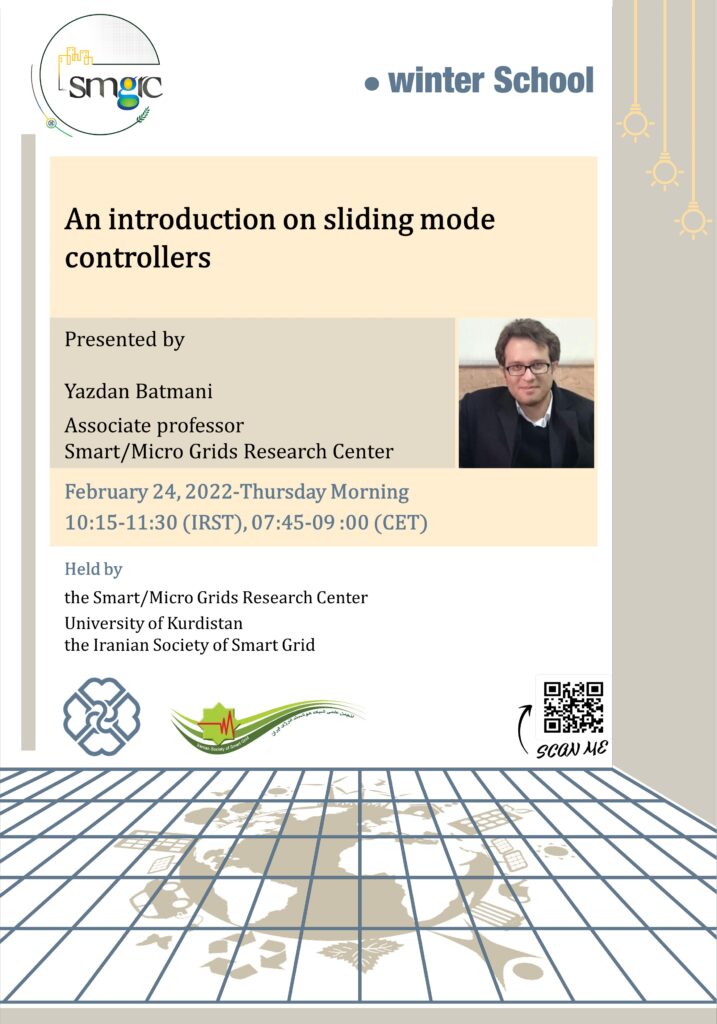
About the Presenter
Yazdan Batmani received the B.Sc. degree in biomedical engineering from the University of Isfahan, Isfahan, Iran, in 2006, and the M.Sc. and Ph.D. degrees in control engineering from K.N. Toosi University of Technology, Tehran, Iran, in 2009 and 2014, respectively. From 2015 until 2019, he was an Assistant Professor with the Department of Electrical Engineering, University of Kurdistan, Sanandaj, Iran where he is currently an Associate Professor. His current research interests include nonlinear control systems, networked control systems, applications of control theory in Diabetes technology, power systems, and microgrids.
General Information:
This course will be useful for …
The aims of this course are …
Where and how you can use this knowledge?
Sliding mode control (SMC) is a nonlinear robust control technique that achieves control objectives by designing a discontinuous control signal. In this method, the system is forced to follow a predefined sliding manifold and stay on it. Since the control law can switch from one continuous structure to another based on the current position in the state space, the SMC is a variable structure control method. The design procedure of the SMC is a two-stage process. The first phase is to design a sliding manifold, and the second one is to determine a switching control law that forces the trajectories of the system onto the sliding manifold and maintains the trajectories on it. As a powerful and systematic method, not only is the SMC widely extended to a lot of different classes of dynamical systems but also is utilized to design robust controllers in many practical systems.
The main objective of this lecture is to present the background of the SMC so that students can apply this theory to design robust controllers for some basic classes of dynamical systems. Since there are many extensions of the idea of the SMC, the lecture will only focus on the main concepts by following some rudimentary examples. Due to presenting some related preliminaries such as the Lyapunov stability, undergraduate and postgraduate students who are familiar with the linear control theory and state-space can participate in the lecture.
Part A